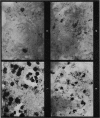Abstract
Cortical thymocytes incorporated tritiated thymidine within ½-4 hours after injection and retained decreasing amounts of the isotope for 5-7 days. In contrast with the remainder of the medulla, Hassall's corpuscles selectively included tritiated nuclear material one day after injection. Corpuscular labelling reached a maximum by the 4th day, then became fragmented and disappeared by the 7th day.
It is deduced that some of the DNA generated in the cortex is transported to the medulla and disintegrates in Hassall's corpuscles. The biological significance of the apparently wasteful DNA synthesis remains unexplained.
Full text
PDF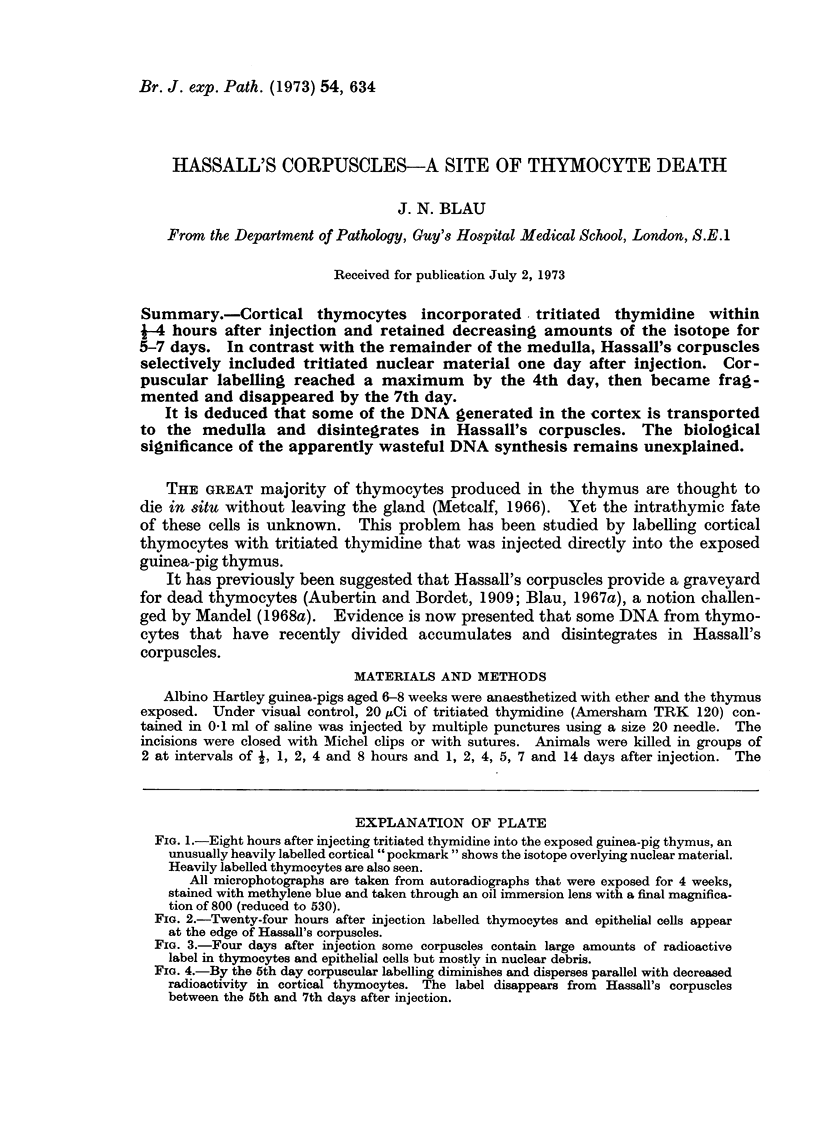
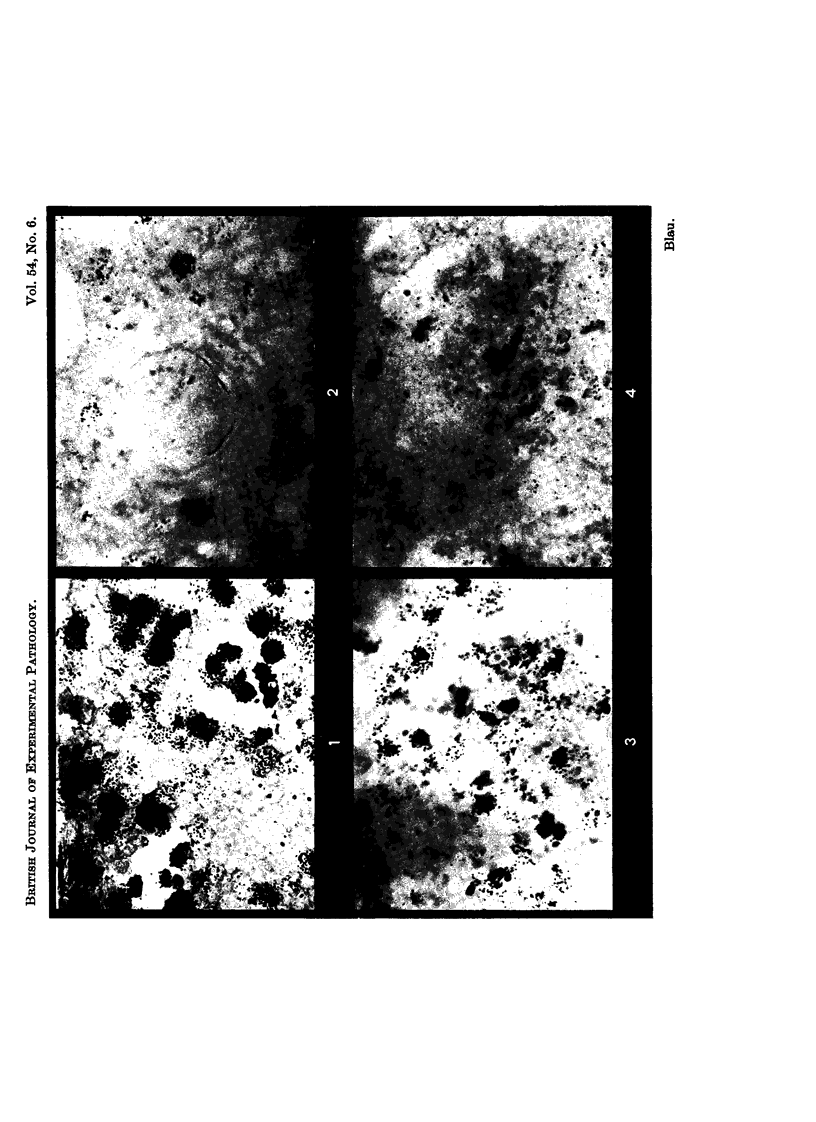
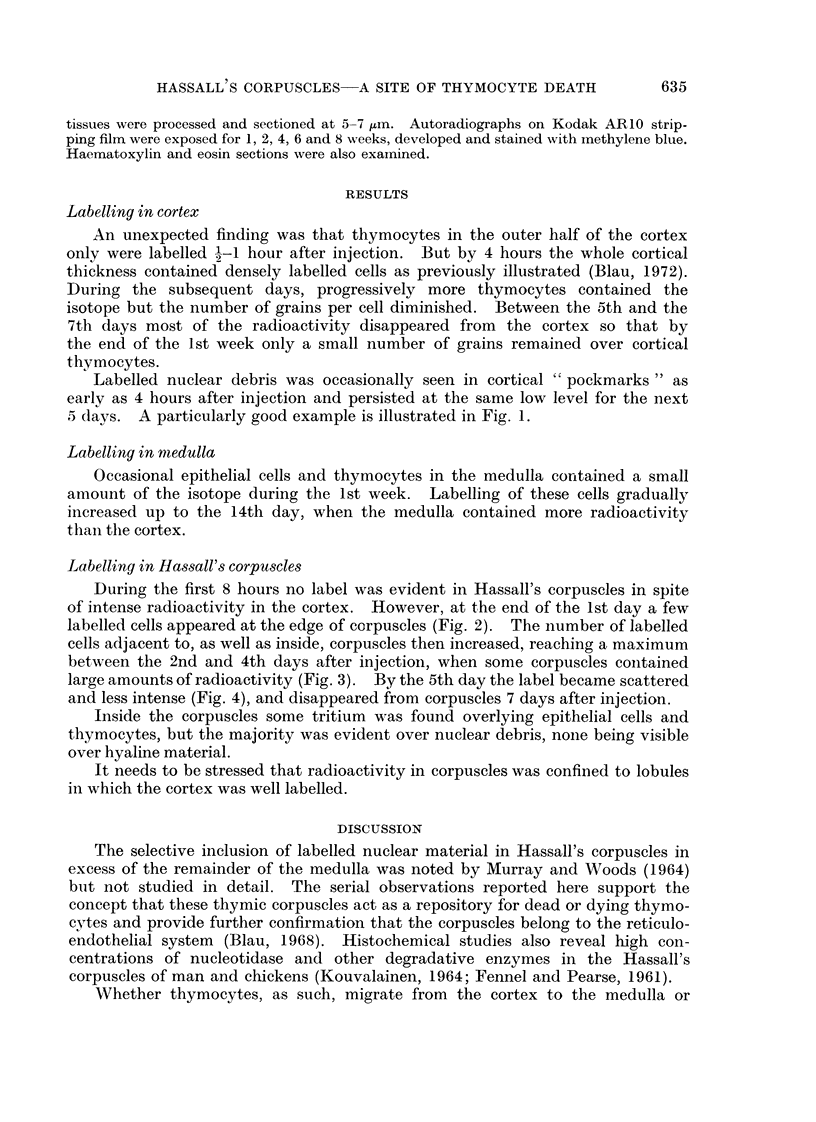
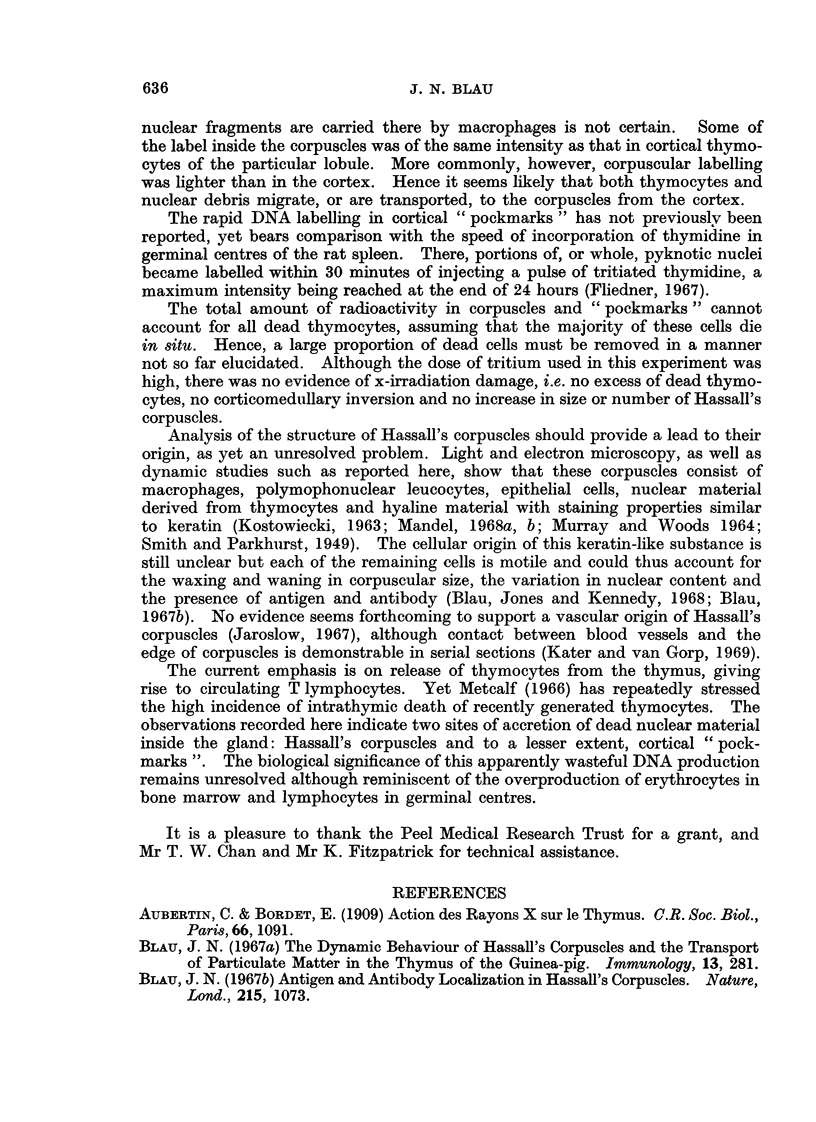
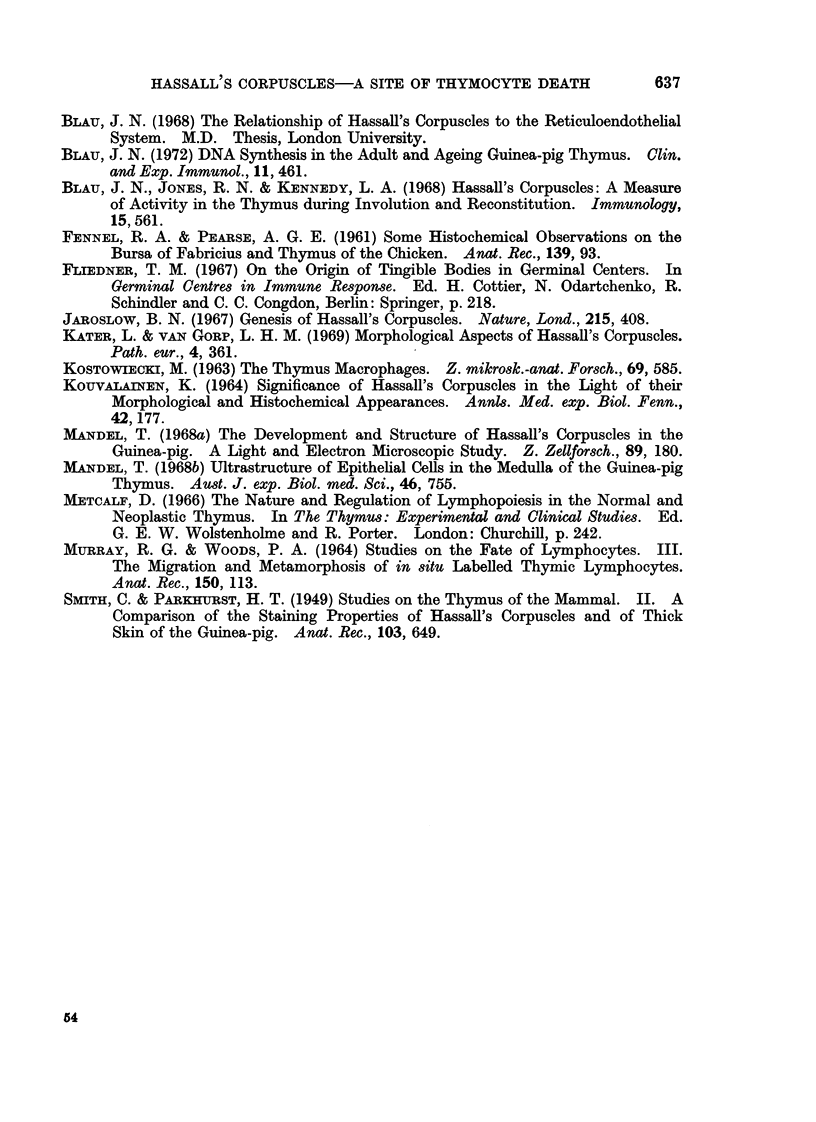
Images in this article
Selected References
These references are in PubMed. This may not be the complete list of references from this article.
- Blau J. N. Antigen and antibody localization in Hassall's corpuscles. Nature. 1967 Sep 2;215(5105):1073–1075. doi: 10.1038/2151073a0. [DOI] [PubMed] [Google Scholar]
- Blau J. N. DNA synthesis in the adult and ageing guinea-pig thymus. Clin Exp Immunol. 1972 Jul;11(3):461–468. [PMC free article] [PubMed] [Google Scholar]
- Blau J. N., Jones R. N., Kennedy L. A. Hassall's corpuscles: a measure of activity in the thymus during involution and reconstitution. Immunology. 1968 Oct;15(4):561–570. [PMC free article] [PubMed] [Google Scholar]
- Blau J. N. The dynamic behaviour of Hassall's corpuscles and the transport of particulate matter in the thymus of the guinea-pig. Immunology. 1967 Sep;13(3):281–292. [PMC free article] [PubMed] [Google Scholar]
- FENNELL R. A., PEARSE A. G. Some histochemical observations on the bursa of Fabricius and thyumus of the chicken. Anat Rec. 1961 Feb;139:93–103. doi: 10.1002/ar.1091390202. [DOI] [PubMed] [Google Scholar]
- Jaroslow B. N. Genesis of Hassall's corpuscles. Nature. 1967 Jul 22;215(5099):408–409. doi: 10.1038/215408a0. [DOI] [PubMed] [Google Scholar]
- KOUVALAINEN K. SIGNIFICANCE OF HASSALL'S CORPUSCLES IN THE LIGHT OF THEIR MORPHOLOGICAL AND HISTOCHEMICAL APPEARANCE. Ann Med Exp Biol Fenn. 1964;42:177–184. [PubMed] [Google Scholar]
- Kater L., van Gorp L. H. Morphological aspects of Hassall's corpuscles. Pathol Eur. 1969;4(4):361–369. [PubMed] [Google Scholar]
- MURRAY R. G., WOODS P. A. STUDIES ON THE FATE OF LYMPHOCYTES. 3. THE MIGRATION AND METAMORPHOSIS OF IN SITU LABELED THYMIC LYMPHOCYTES. Anat Rec. 1964 Oct;150:113–128. doi: 10.1002/ar.1091500203. [DOI] [PubMed] [Google Scholar]
- Mandel T. The development and structure of Hassall's corpuscles in the guinea pig. A light and electron microscopic study. Z Zellforsch Mikrosk Anat. 1968;89(2):180–192. doi: 10.1007/BF00347291. [DOI] [PubMed] [Google Scholar]
- Mandel T. Ultrastructure of epithelial cells in the medulla of the guinea-pig thymus. Aust J Exp Biol Med Sci. 1968 Dec;46(6):755–767. doi: 10.1038/icb.1968.182. [DOI] [PubMed] [Google Scholar]



